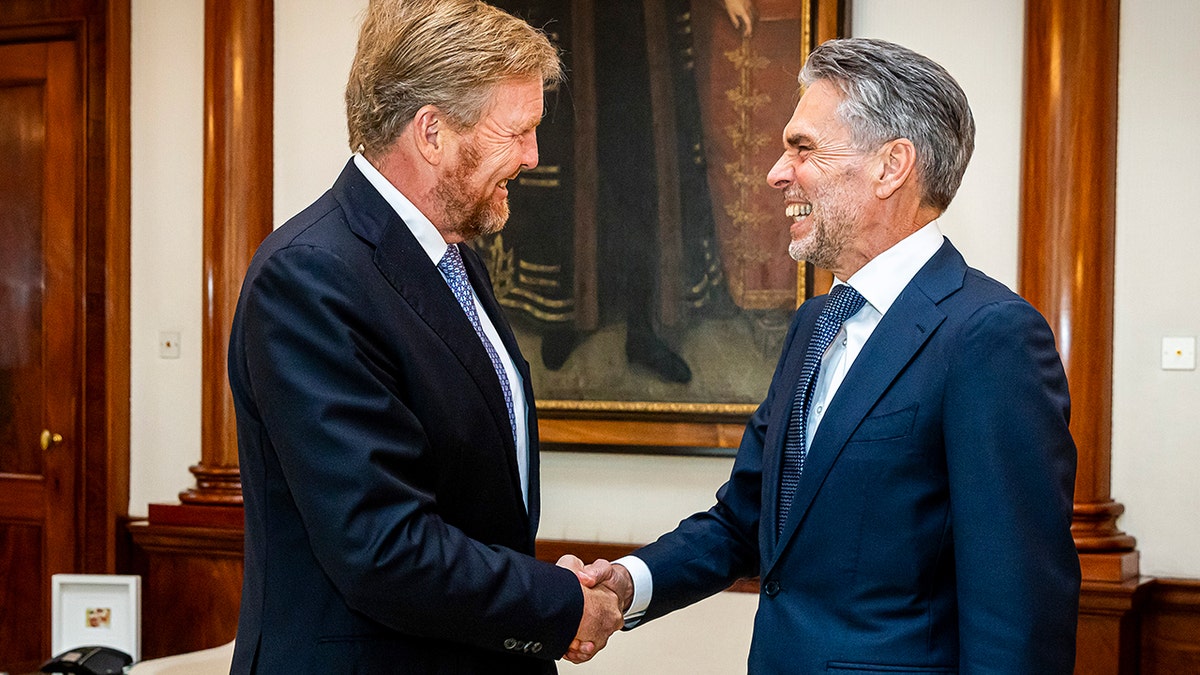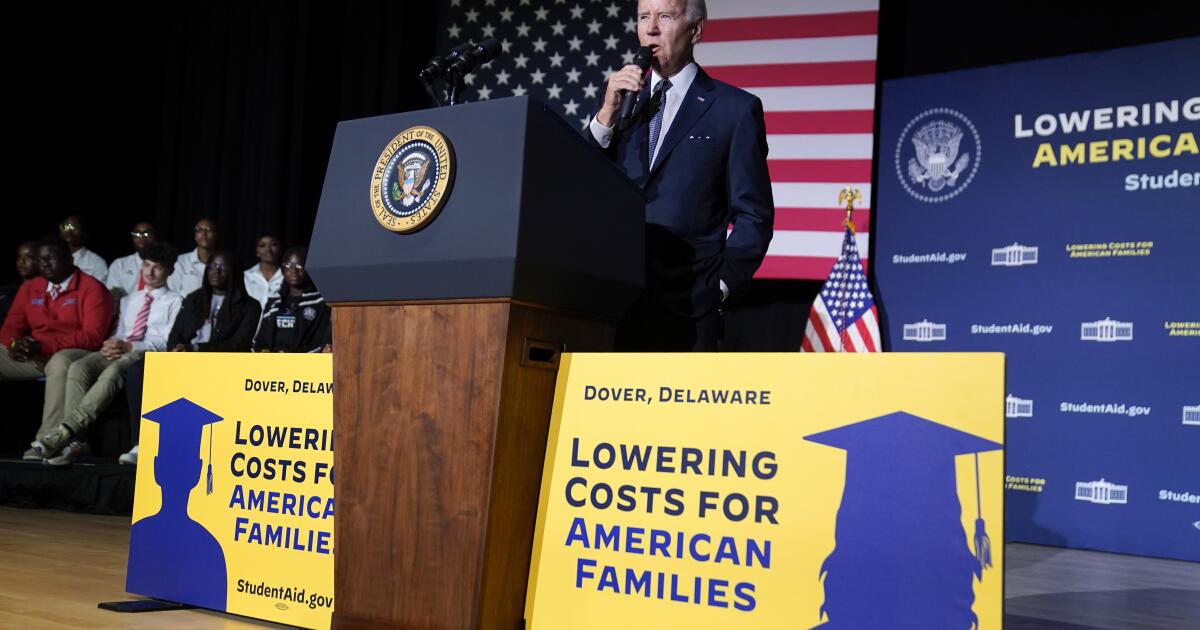Netherlands Dutch King Willem-Alexander swore in the country’s new government on Tuesday, more than seven months after elections were dominated by a right-wing, anti-Islam party.
Dick Schoof, the former head of the Dutch intelligence agency and counter-terrorism office, signed the official royal decree at Huis Ten Bosch palace, saying he “declares and promises” to take up his duties as the country’s prime minister. Schoof, 67, was formally installed along with 15 other ministers from the country’s right-wing coalition.
Former intelligence chief named as new PM by incoming Netherlands government
Firebrand leader Geert Wilders’ anti-immigration party won the most seats in last year’s election but it took 223 days to form a government.
The new coalition soon faced criticism for its key anti-immigration policies – from within its own party members as well as opposition groups. Protesters gathered outside the palace where the ceremony took place on Tuesday, including one woman holding a placard that read: “Are we democratically getting rid of our democracy?”
The four parties in the coalition are Wilders’ Party for Freedom, the outgoing Prime Minister Mark Rutte the centre-right People’s Party for Freedom and Democracy, the populist Peasant Citizens’ Movement and the centrist New Social Contract Party.

Dutch King Willem-Alexander meets Prime Minister-elect Dick Schopf, in The Hague, Netherlands, Monday, July 1, 2024. (Patrick van Katwijk/Pool Photo via AP)
The formal agreement creating the new coalition, titled “Hope, Courage and Pride”, seeks to toughen measures for asylum seekers, end family reunification for refugees and reduce the number of international students studying in the country.
The controversial Wilders did not take office as prime minister because of opposition from other coalition partners. During months of negotiations, he backed down on many of his more extreme views, including withdrawing a draft law banning mosques, Islamic schools and the Quran.
For the first time since World War II, the Netherlands is being led by a prime minister who is not affiliated with a political party. Before serving as head of the country’s top intelligence agency, Schoof was previously counterterrorism chief and head of the country’s immigration and naturalisation service.
On Tuesday, other government ministers were sworn in according to the seniority of their portfolios. Femke Wiersma, a minister responsible for agriculture, took her oath in Frisian – the country’s second official language after Dutch.
Although the November elections were widely seen as a victory for the right, political youth organisations are already pushing back against the new government’s ambitions. Ahead of the swearing-in ceremony, youth groups from six parties, including two coalition partners, called for leniency on asylum plans.
“Although the arrival of people must be limited, it is very important that we welcome people here fairly and respectfully,” Eva Brandeman, chairwoman of the youth wing of the New Social Contract, told Dutch public broadcaster NOS.
His counterpart in Rutte’s party, which toppled the government last summer over concerns about the number of family reunions for refugees, said the problems stemmed from administration, not migration.
“If you don’t fix it the problem will get bigger,” Mock Bresser, chairman of the People’s Party for Freedom and Democracy youth organization, told The Associated Press. “If you don’t fix it the problem will get bigger.”
While Bresser believes the number of refugees coming to the Netherlands should be reduced, his group says those who are already here should have their claims settled in a timely manner and be given the opportunity to integrate.
The new agreement cuts the country’s education budget by about 1 billion euros — about $1.06 billion — leading to protests at universities. “Students will not get the education they deserve,” Nivja de Jong, a language professor at Leiden University, told the AP. She is part of a group of academics who are speaking out against the proposed cuts by giving lunchtime lectures about the importance of their research.
Click here to get the Fox News app
The new government will now spend its time over the summer translating the coalition agreement into a governance plan.
The Netherlands is not the only country seeing a rise in anti-immigration, far-right views. A similar shift was seen in last month’s EU elections, and French electorate The deciding factor will be the July 7 parliamentary election that could lead to the formation of the country’s first right-wing government since Nazi occupation after World War II.

















